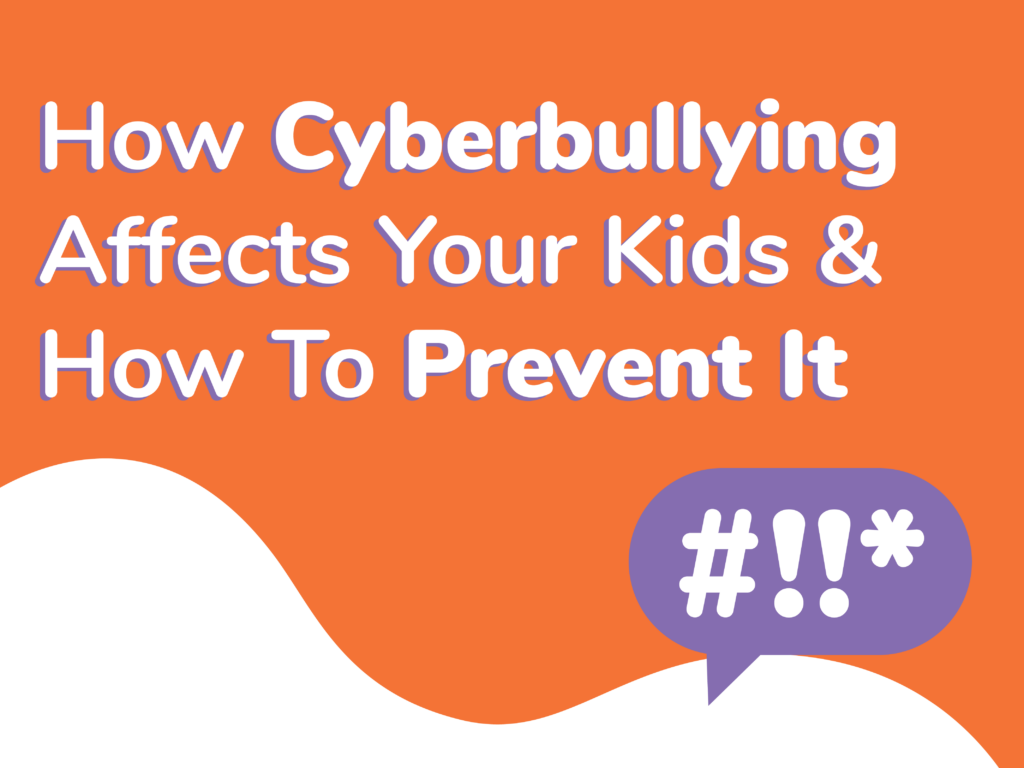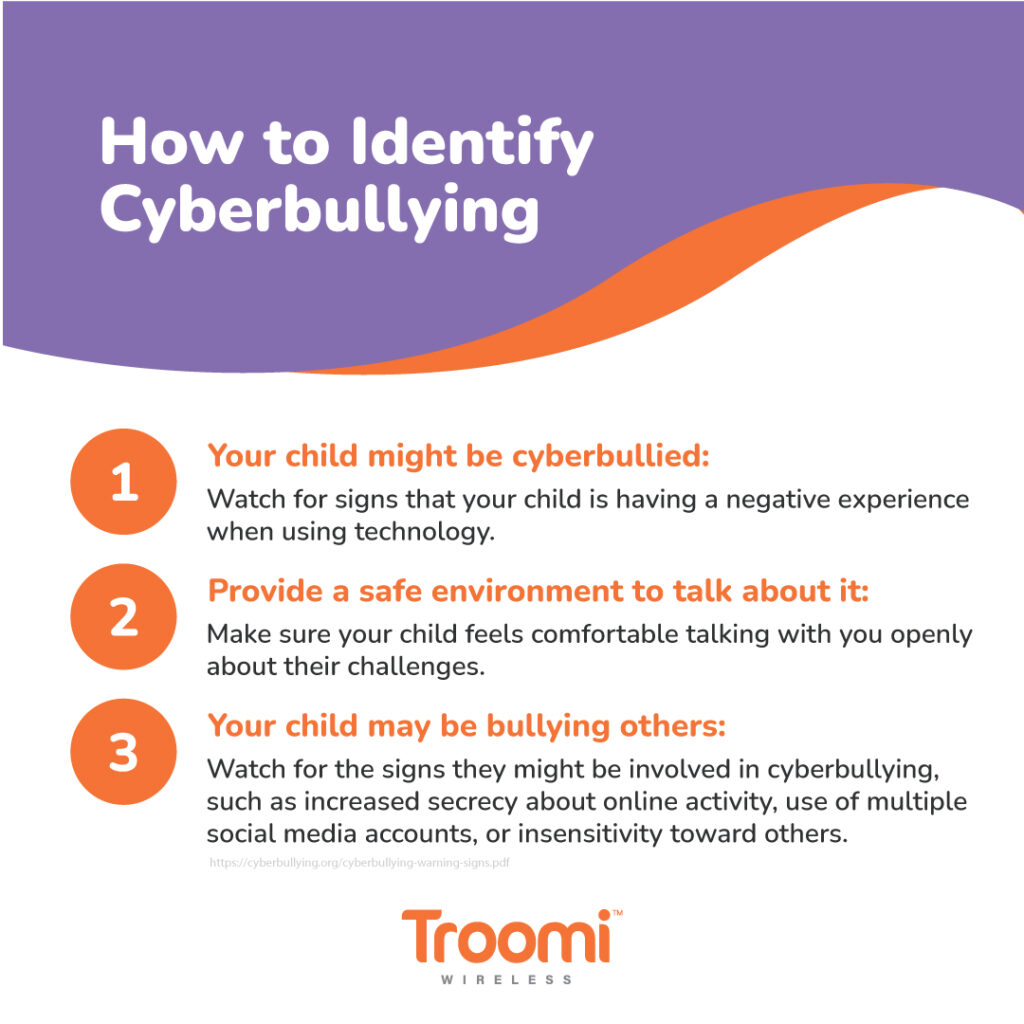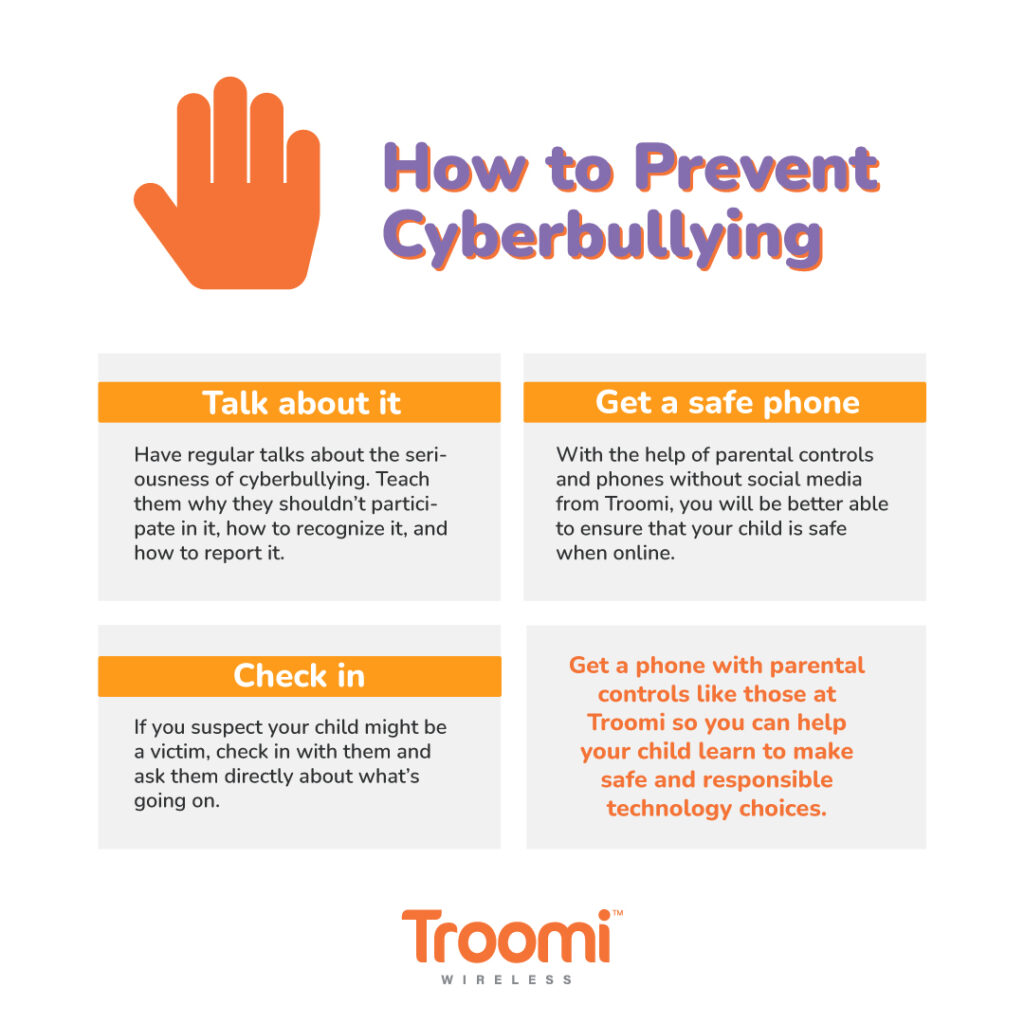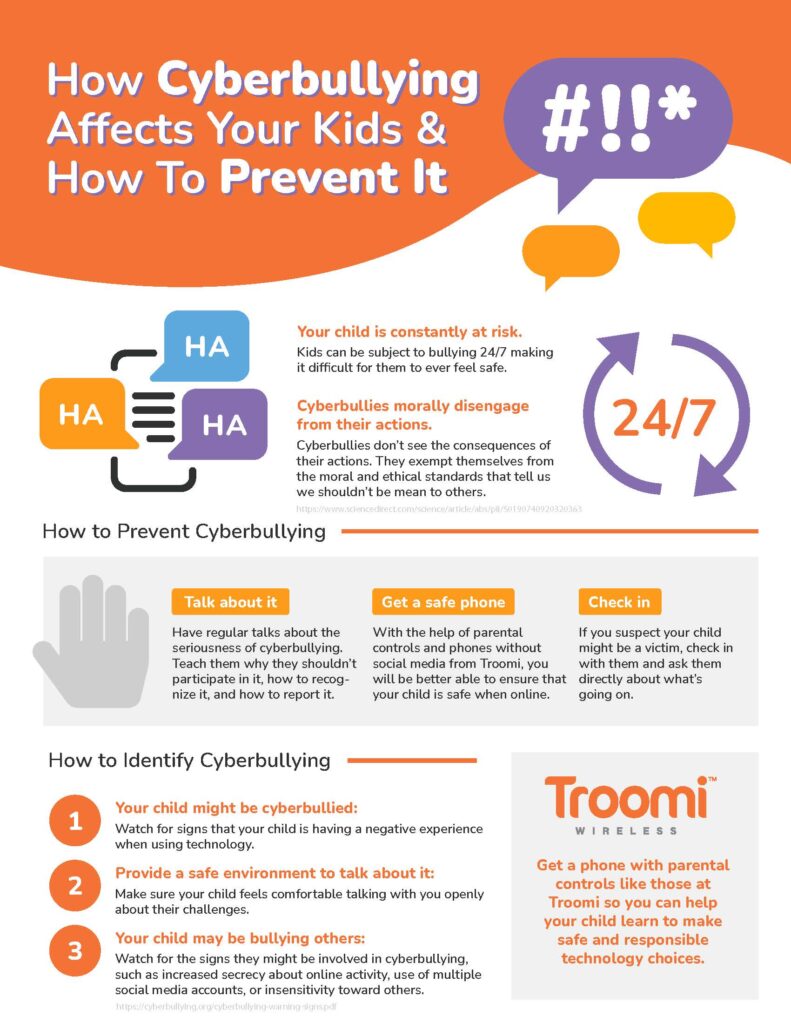
We’re all familiar with the stereotypical cases of school bullying from TV shows and movies: high school jocks shoving the smaller kids into lockers or the “cool girls” making fun of another girl’s outfit. We know our children might face this type of bullying while in school, but we don’t usually worry about them being bullied in a safe place like home. Unfortunately, cyberbullying can happen anywhere to anyone—even within the walls of your own home—so how do we combat it? And what are the effects of cyberbullying on our children?
Let’s look at the effects of cyberbullying, how to identify it, and how to protect our kids from it.
What Are the Effects of Cyberbullying?
At first glance, cyberbullying may not seem all that different from traditional bullying, however it can be far more harmful.
- Your child is constantly at risk. There is no one place where cyberbullying physically happens. Kids can be subject to bullying 24/7, making it difficult for them to ever feel safe. Bullies, on the other hand, feel more protected when they’re behind a screen.
- Cyberbullies morally disengage from their actions. It’s easier to be mean when a bully doesn’t see the consequences of their actions. Studies show that cyberbullying is positively associated with moral disengagement. This means that cyberbullies exempt themselves from the social standards that tell us we should be kind.
How to Identify Cyberbullying

Bullying of any kind causes shame, guilt, and fear, making it difficult for victims to reach out for help. Often, a victim’s loved ones are unaware of any bullying that is taking place. Similarly, if your child is the one doing the bullying, it might not be immediately obvious to you. Here are some signs to watch out for:
- If you’re concerned that your child is being cyberbullied, watch for signs that they’re having a negative experience when using technology. These signs might include a sudden aversion to using their device, a reluctance to discuss their online activity, or a noticeably frustrated or sad mood after using their device. If you begin to notice some of these signs, have a conversation with your child. Help them recognize the importance of asking for help when faced with any kind of bullying.
- Provide your child with a safe environment to talk about it. Make sure your child feels comfortable talking with you openly about their challenges. Show them you care about the little things so they will feel safe talking with you about bigger things like cyberbullying. If your child tells you that someone is cyberbullying them, learn all you can about the situation before you decide what steps need to be taken. Cyberbullying.org can be a useful tool for parents whose children are victims of cyberbullying.
- If you’re concerned that your child is bullying others, watch for the signs they might be involved in cyberbullying. These may include increased secrecy about online activity, use of multiple social media accounts, or insensitivity toward others. If your child is involved in cyberbullying, stop the bullying, remain calm, and try to understand the root cause of their actions. Cyberbullying.org also offers information for parents whose children are involved in cyberbullying.
How to Prevent or Stop Cyberbullying

- Talk about it. Have regular talks with your children about the seriousness of cyberbullying. Teach them why they shouldn’t cyberbully, how to recognize it, and how to report it.
- Get a safe phone for kids. Get your children a safe phone with parental controls like those at Troomi. Because they don’t have social media, these phones can also help protect your children from exposure to cyberbullies on platforms like Instagram and SnapChat.
- Check in. Children who are cyberbullied often don’t seek help. If you suspect your child might be a victim, check in with them and ask them directly about what’s going on. Encourage your child to seek your help if they have any online interactions that are hurtful or make them uncomfortable.
Anyone can be a victim of or participant in cyberbullying. And many times, it could happen without your child realizing what’s going on. That’s why it’s crucial to educate your children about what cyberbullying is and take the necessary precautions to help them avoid it. With the help of parental controls and phones without social media from Troomi, you will be better able to ensure that your child is safe when online.

